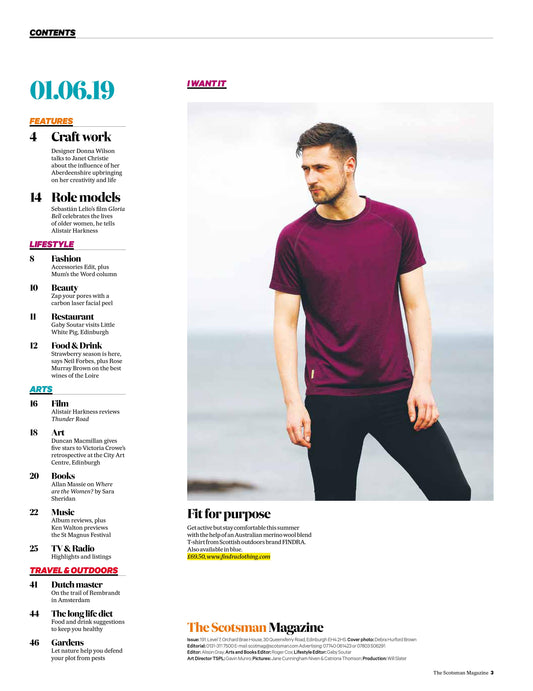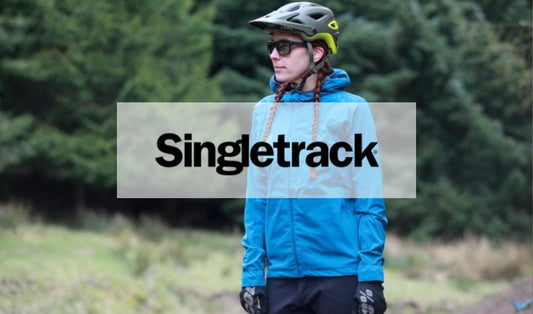
Let’s talk about sustainability - a word that is often bandied about these days but how many of us know what it actually means? According to the Oxford English Dictionary it is:
1. The ability to be maintained at a certain rate or level
1.1 Avoidance of the depletion of natural resources in order to maintain an ecological balance
Essentially, in the context of the environment, it means to cause little or no damage to the environment. This is something that has been amiss in recent years and during the industrial era and now we are awakening to the fact we have a climate emergency and that we need to do something about it.
Right now, the world is at zero hour. We have technically reached the point where life on Earth is unsustainable. We have used our natural resources to near the point of extinction. Fast fashion and convenience for pretty much everything has had us demanding so many resources from our planet - every piece of plastic ever created is still in existence today. We all need to make a change to our daily lives to make a change to the future of the planet.
Even if we didn’t have the current climate emergency, we have guardianship of Planet Earth for the duration of our lifetimes – surely, it’s our job as human beings to look after this little blue planet that orbits the sun for future generations to enjoy. We have no other home…
Sustainability needs to be addressed at a global and governmental level but can also be addressed at a local and individual level and that’s where big difference can be made en masse. We, as individuals and consumers, can all do little things to be more sustainable.
So, after a gloomy start to this blog what can we do to make a difference at a local level?
1. Reduce, Reuse, Recycle
Can you repurpose a holey tea towel as a duster? What's your favourite piece of clothing made from? If you're buying new, buy quality from sustainable suppliers like FINDRA, using one of the most sustainable fabrics in their garments, merino wool.
Recycling doesn’t just include plastic packaging, glass and paper. Clothes can be recycled but so can furniture in the form of upcycling (reusing & recycling). I’ve lost count of furniture I’ve rescued from skips to make them pretty and loved by someone else.
Food waste is also a huge issue. 1.35 million tonnes of food waste end up in landfill every year in Scotland. Get creative with leftovers – check out Love Food Hate Waste for great ideas with leftovers as well as other tips about food waste.
2. Grow your own or eat seasonal local or, at the very least, British produce
I love growing my own fruit and veg and it tastes so much better than shop bought – fresher and full of flavour. You can even grow veg in containers in small gardens that only have patio space! If you can’t grow your own, the next best sustainable solution is to buy local seasonal produce. If you can’t get local then buy British, seasonal produce. Strawberries are not natural in January! Less transport miles means less carbon footprint for your fruit and veg.
3. Ditch the car
Can you walk there? If it’s less than a mile, that is probably achievable for most people. It takes about 20 minutes to walk a mile. Further than a mile? Do you have a bike? Could you use public transport. Walking and cycling, or walking to the bus or train station, also have the added benefit of getting fitter without having to go to a gym. Also reduces your carbon footprint – using the car to travel 1 mile every day emits a shade over 400g of carbon dioxide – that’s equivalent to about 150 kg per year.
4. Say no to plastic
Did you know you can take your own containers to supermarkets these days? Morrison’s, Tesco and Waitrose all offer this alternative to plastic bags at their fresh food counters and most local butchers, greengrocers etc. are usually very open to this as well. One of the biggest and most simple changes that you can make is to get a reusable water bottle – 700,000 single-use plastic bottles were littered in 2018. Most places will fill up your reusable bottles these days if you ask nicely*!
* you might need to buy a slice of cake or something but that’s ok, you’re walking it off because you’re doing step 3, right?!
These 4 steps are not an exhaustive list of ways to live more sustainably. There are, of course, many other ways. These are relatively easy to implement in your day to day life without too much effort.
In January 2019, I was lucky enough to go to Antarctica with a group of eighty women from various walks of life and what we all had in common was that we all came from STEM (Science, Technology, Engineering, Maths and Medicine) backgrounds and that we all cared about the future of the planet and sustainability. The purpose of this was to work out how we can make a difference to the future of the planet – we had people who could influence governments, policy makers and big multi-national organisations.
What struck me about Antarctica was that it was a pristine, isolated, wild environment. It is an absolute privilege to have been able to travel there and see it with my own eyes. To see humpback whales, penguins & orcas living so freely and, seemingly, so effortlessly was a phenomenal experience that I struggle to explain. The other side to this, however, is that they are not living so effortlessly due to their food sources, predominantly krill, being directly affected by a warming climate and overfishing. We travelled to Antarctica to see first-hand the effect of climate change. The Antarctic Peninsula is the fastest warming place on Earth. The warming in this area has profound global effects through warming ocean temperatures. This directly affects krill stocks, which is the main food source for these amazing ocean giants.
For all the beauty of Antarctica, the realisation while I was there was that there is no permanent population in Antarctica, and thus all the warming that is seen in Antarctica is caused by events far away across the globe. By seeing this with my own eyes, I am able to know that I will do whatever I need to do at a local level to contribute to global change. This included carbon offsetting all my flights and marine travel to Antarctica.
There is no one saviour for our planet – somebody else isn’t going to fix the problems that we have created. It’s up to all of us to do our bit and it starts by small local steps to build global change.
Huge thank you to FINDRA for their very kind support of the Scottish Homeward Bound Team – Helen Wade, Lorna Slater and myself.





